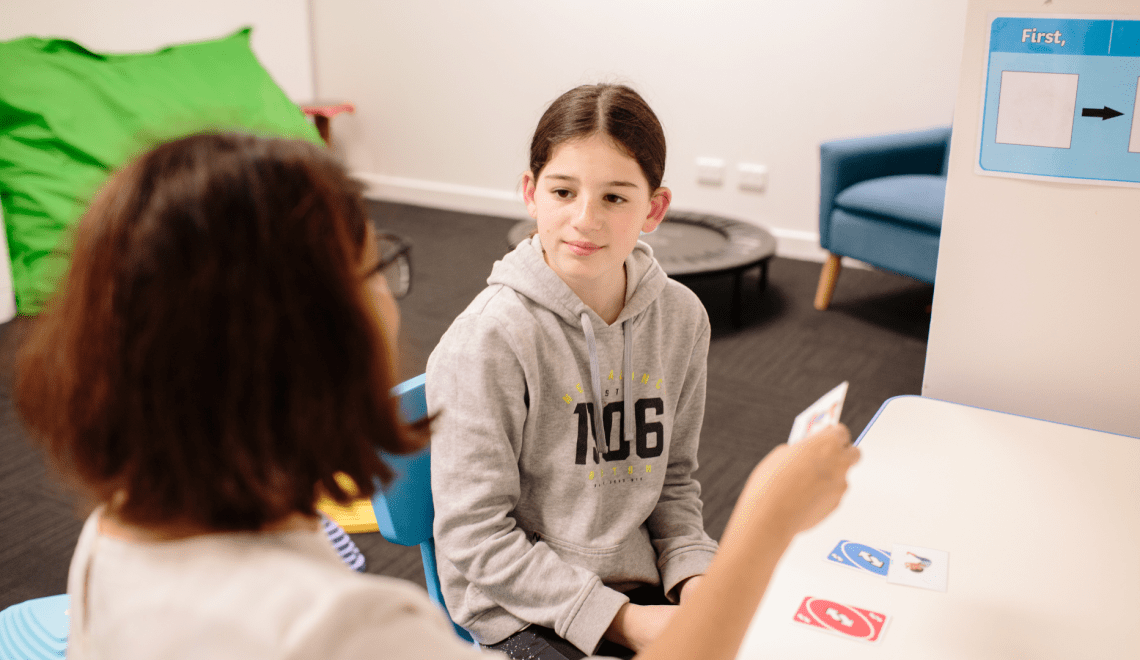
Written by Heidi Ho (Senior Speech Therapist), with insights from Rachel Paul (Senior Occupational Therapist) and Bridget Tegg (Senior Psychologist) at Early Start Australia’s Bondi Junction Clinic.
Transitioning into secondary school is a significant milestone and can be an exciting period for young people and their families, but it may also come with challenges. Young people often need to learn how to manage new expectations and navigate emotional, social, and academic changes. Some common concerns that young people may face include time management skills, emotional regulation, peer pressure, increase in expectations, self-confidence, fear of being bullied, low motivation, and unhelpful thoughts. Some young people may thrive in this environment while others may need support to develop their resilience and self-confidence.
Challenges
- Organisational demands:
Your child may be required to read their own timetables, maps, navigate independently in a new environment, and organise themselves and their time for travel between classes.
- Social emotional demands:
It is a new school with new peers and new teachers; there will be a period of settling in, helping your child use strategies around self-confidence, making new friends and navigating a new community.
Problem solving and logical reasoning skills in social contexts will also be crucial in helping your child determine how to make informed decisions in situations where they might experience peer pressure in high school.
- Academic demands:
There will be increased expectations to write extended essays, and for your child to be able to manage and prioritise their homework and assignments. The complexity of work and information is also likely to increase, therefore it will be important to teach your child studying strategies, summarising and note taking skills to be able to maximise their learning in the classroom. In addition, your child may need support with participating in examinations and learning revision skills.
Your child will also be engaging in critical discussions in school and will need to demonstrate higher level language skills in understanding humour, metaphors, sarcasm, and other techniques, to be able to participate effectively in the school environment.
Helpful tips
- Managing emotions
- Validate your child’s emotions – it is okay to have mixed feelings.
- Encourage open communication and let them know you are always available to talk when they are ready. It is okay if your child is unable to express themselves immediately, they may need time to process their experiences. Alternatively, encourage them to communicate with you in alternative ways to allow them to easily express themselves (e.g. text, letters, art).
- While it is okay to acknowledge the challenges they may face, talk with your child about the positive aspects of high school and the opportunities it offers.
- Check-in with your child and tune into any behavioural or emotional changes to help decide if additional support is required. Behavioural and emotional changes may include but not limited to increase in somatic complaints (body pain), withdrawal from things they use to do, changes in sleeping or eating habits, or an increased in heightened emotions.
If you are concerned about your child’s transition to high school, remember to self-regulate and model relaxation techniques. Children learn from their environmental experiences. Engaging in additional support, such as psychology, speech therapy or occupational therapy can also support young people and their families to navigate the changes and support their transition into this new era of the young person’s life. For families accessing services, options like early intervention NDIS can provide structured assistance and resources tailored to these needs.
Encourage healthy habits
- Support them with a healthy food options and sleep routine
- Encourage school-life balance and making time for other activities of interest
- Set boundaries around use of technology and devices
Encourage friendships
- Support your child with staying in touch with friends from primary school who are transitioning to a different high school. Talk to them about ways this can be achieved.
- If your child has challenges with social skills, practice conversation starters or brainstorm topics and activities they can discuss or participate in with peers during lunch or playtime.
- Engage in extra-curricular activities to provide multiple opportunities for your child to meet new people and make friends.
Provide support for organisational skills
- Support your child with timetables and checklists at home to manage the increase in workload.
- Reassure your child that it is okay to ask for help if they are feeling overwhelmed. Encourage your child to engage with their teacher and other school support staff to ensure they know who to go to when needing to clarify information or apply for extension on work tasks.
- Attend the secondary school transition and orientation programs in the last year of primary school.
- Involve your child in decision-making where possible (e.g. discuss transport options to and from school).
These strategies may be beneficial in supporting your child navigate high school as a teenager. While it can be stressful, high school can also be one of the highlights of your child’s life. If you feel like your child needs assistance in reaching this potential, do not hesitate to seek support from a trained professional.
For more information on how you can support your child in the transition to high-school contact the team at Early Start Australia Bondi Junction Bondi Junction – Early Start Australia .










